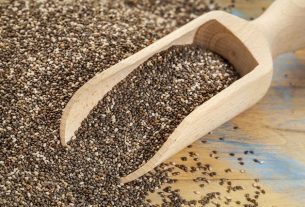Ashwagandha is used to help improve physical and mental performance and reduce anxiety, and can be indicated in cases of stress or general tiredness. This medicinal plant, popularly known as Indian ginseng, is rich in alkaloids, lactones and saponins, which have calming, anti-stress and anti-inflammatory properties.
The normally used part of ashwagandha is the root, which can be used in the form of tea, capsules or liquid, and can be found in herbalists, health food stores, compounding pharmacies, markets and some street markets.
Ashwagandha, with its scientific name Withania somnifera, it should always be used under the guidance of a doctor or other health professional who has experience with the use of medicinal plants, as when consumed in excess it can cause headache or diarrhea, in addition to not being recommended for pregnant or breastfeeding women. .

Main benefits
Ashwagandha has anti-hyperglycemic, anti-inflammatory, antioxidant, calming and anxiolytic properties and, therefore, guarantees several health benefits, the main ones being:
1. Increase sexual desire
Some studies show that ashwagandha can help increase sexual desire as it helps regulate hormones, promoting better functioning of the reproductive organs, such as better female lubrication and satisfaction in intimate contact.
Additionally, ashwagandha may help reduce stress and anxiety, which are often associated with decreased sexual desire in women and men. Thus, this plant can also increase sexual desire.
2. Increase fertility
According to some studies, ashwagandha can help increase fertility in men by increasing the production of testosterone, which leads to an increase in the quantity and motility of sperm.
Furthermore, in women, ashwagandha can also help increase fertility, as it improves hormonal balance, promoting better functioning of the reproductive organs, in addition to strengthening the uterus of women who have already had an abortion.
However, more studies are still needed to prove this benefit.
3. Decrease stress and anxiety
Ashwagandha has substances in its composition, such as sitoindosides and acylsterylglucosides with adaptogenic action, which helps to reduce stress and anxiety, reducing the production of cortisol, which is a hormone released in greater quantities during periods of stress.
In addition to its adaptogenic action, ashwagandha also has substances that act on the central nervous system in the same way as the neurotransmitter GABA, which helps to increase the body’s feeling of relaxation and reduce symptoms of anxiety and stress such as agitation, nervousness, mental fatigue. or difficulty concentrating.
4. Combat insomnia
Ashwagandha can help improve sleep quality and reduce anxiety that can often cause difficulty sleeping. In this way, this medicinal plant can be useful in helping to combat insomnia.
Furthermore, by improving sleep quality and combating insomnia, this medicinal plant also helps improve energy levels and alertness during the day.
5. Improve memory
A study carried out on adults taking 600 mg of ashwagandha extract per day for 8 weeks showed that this medicinal plant can help improve memory, attention and the speed at which information is processed by the brain.
Furthermore, due to its antioxidant effects, ashwagandha can help reduce damage caused by free radicals in the brain, helping to improve its functioning and cognitive and motor capacity.
Although ashwagandha has benefits for memory, more studies are still needed to prove this benefit.
6. Improves muscle performance
Ashwagandha can help improve muscle performance during physical activities, because this medicinal plant can contribute to increasing strength and muscle mass, in addition to the use of oxygen by muscles.
7. Strengthen the immune system
Ashwagandha is rich in alkaloids, lactones and saponins that have anti-inflammatory, antioxidant and immunomodulatory actions, which help to strengthen the immune system, preventing and helping to fight infections.
8. Help control blood sugar
Ashwagandha has substances in its composition, such as witaferin A, with anti-glycemic properties, which help control blood glucose by stimulating cells to use the glucose present in the blood.
Furthermore, some studies carried out with laboratory or human cells have shown that ashwagandha helped reduce blood glucose and glycated hemoglobin levels, which may be useful for controlling diabetes.
However, it is important to emphasize that ashwagandha does not replace diabetes treatment recommended by your doctor. See how diabetes is treated.
9. Prevent cardiovascular diseases
The alkaloids, steroid lactones and glycosides present in ashwagandha have antioxidant action, which help reduce bad cholesterol, which is responsible for forming fatty plaques in the arteries. Thus, this medicinal plant can help reduce the accumulation of fats in blood vessels and reduce the risk of cardiovascular diseases such as atherosclerosis, heart attack or stroke.
However, regular consumption of ashwagandha does not replace medical treatment with medicines and does not exclude the need to eat a healthy, low-fat diet. Check out the main remedies to lower cholesterol.
10. Help in cancer treatment
Some studies carried out with cells or animals in the laboratory indicate that ashwagandha has properties that have been shown to be effective in helping to treat different types of cancer, such as breast, pancreas, lung, cervical and skin, for example. However, more studies are still needed to confirm these properties.
How to drink
The normally used part of ashwagandha is the root from which its active substances are extracted and can be consumed in the form of tea, capsules or used liquid in the form of a fluid extract.
The main ways to use ashwagandha are:
- 500 mg capsules: the recommended dose is 1 capsule of 500 mg, orally, 1 to 2 times a day, with a meal;
- Fluid extract (liquid): the recommended dose is 2 to 4 mL (40 to 80 drops) with a little water, orally, once a day;
- Ashwagandha tea: Place 1 teaspoon of dry ashwagandha root in 120 mL of boiling water. Let it rest for 15 minutes, strain and drink warm. It is recommended to drink 1 cup per day for a maximum period of 6 months.
The duration of treatment with ashwagandha depends on medical guidance and indication.
Possible side effects
Ashwagandha is safe when consumed in amounts recommended by your doctor and for a maximum period of 6 months. However, during treatment, when consumed very frequently, in greater quantities than recommended or for more than 6 months, side effects such as stomach pain, diarrhea or vomiting may occur.
Some studies indicate that the consumption of ashwagandha can cause liver damage such as hepatitis or jaundice, with symptoms that begin 2 to 12 weeks after starting to use this medicinal plant, such as yellowing of the skin and eyes or intense itching on the body.
Who shouldn’t take
Ashwagandha should not be used by pregnant or breastfeeding women, people with autoimmune diseases such as rheumatoid arthritis or lupus, or those who have a stomach ulcer.
In addition, ashwagandha can reduce blood pressure and make it difficult to control blood pressure in people with hypertension, or reduce blood sugar levels too much, causing hypoglycemia in diabetics.
Since ashwagandha has a sedative effect, people who are taking medication for anxiety or depression should avoid using this medicinal plant, as it can cause excessive sleepiness.

Sign up for our newsletter and stay up to date with exclusive news
that can transform your routine!
Warning: Undefined array key "title" in /home/storelat/public_html/wp-content/plugins/link-whisper-premium/templates/frontend/related-posts.php on line 12
Warning: Undefined array key "title_tag" in /home/storelat/public_html/wp-content/plugins/link-whisper-premium/templates/frontend/related-posts.php on line 13



